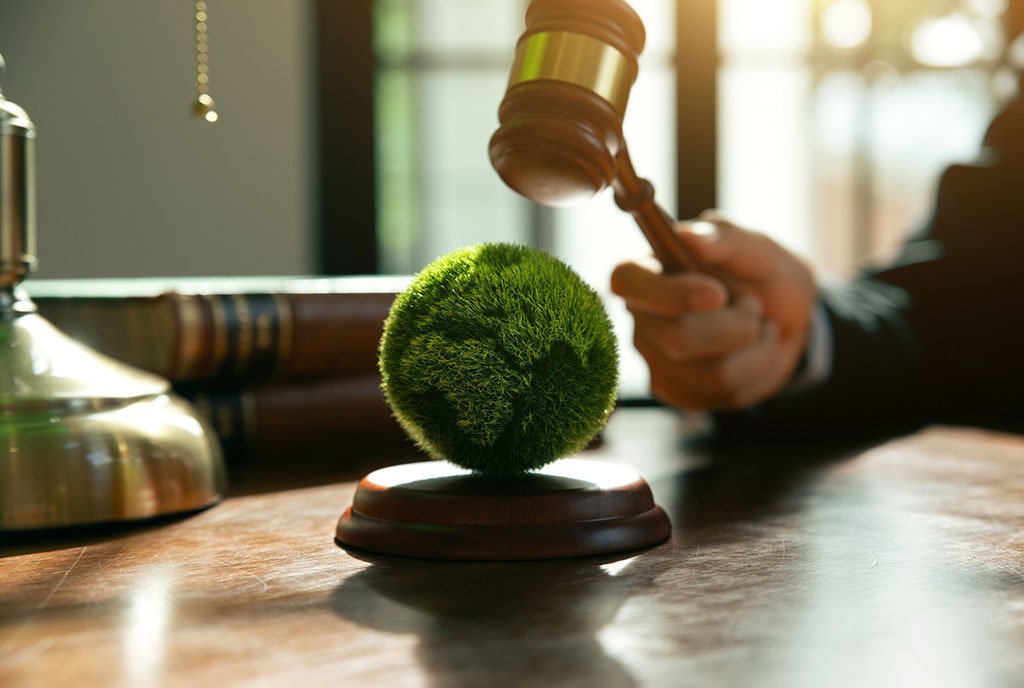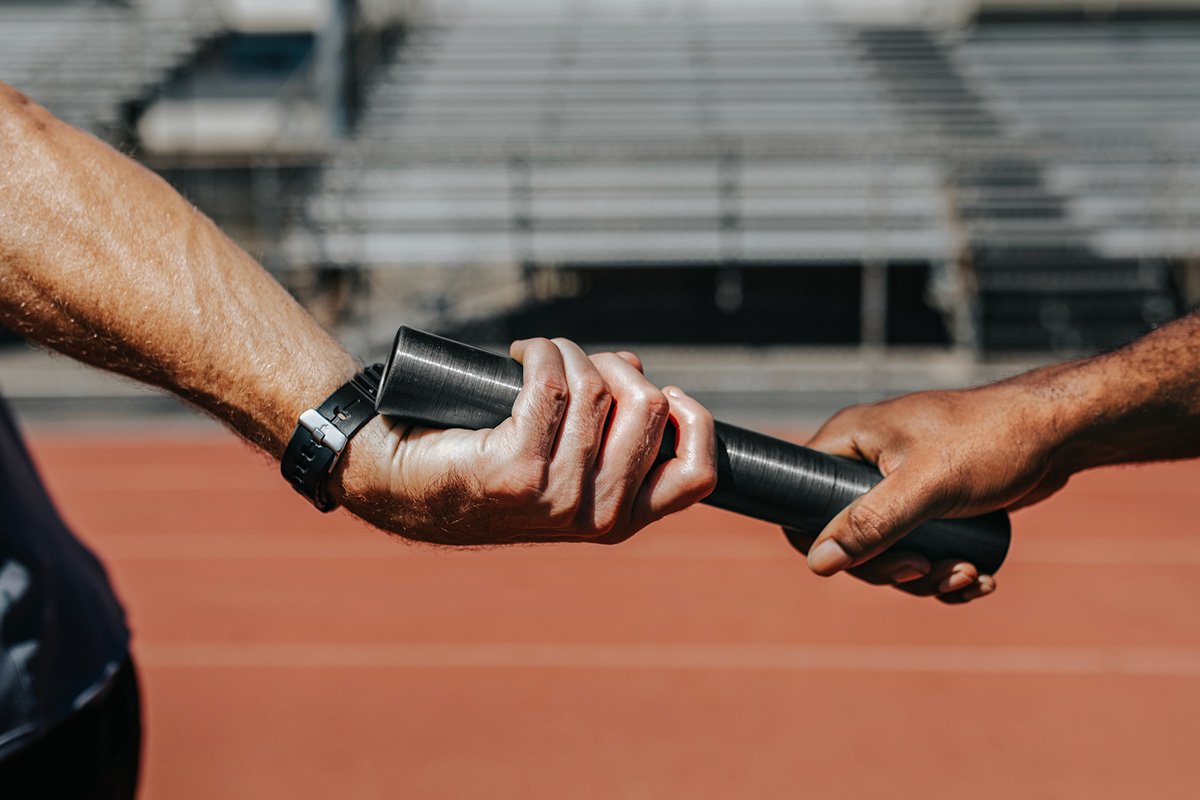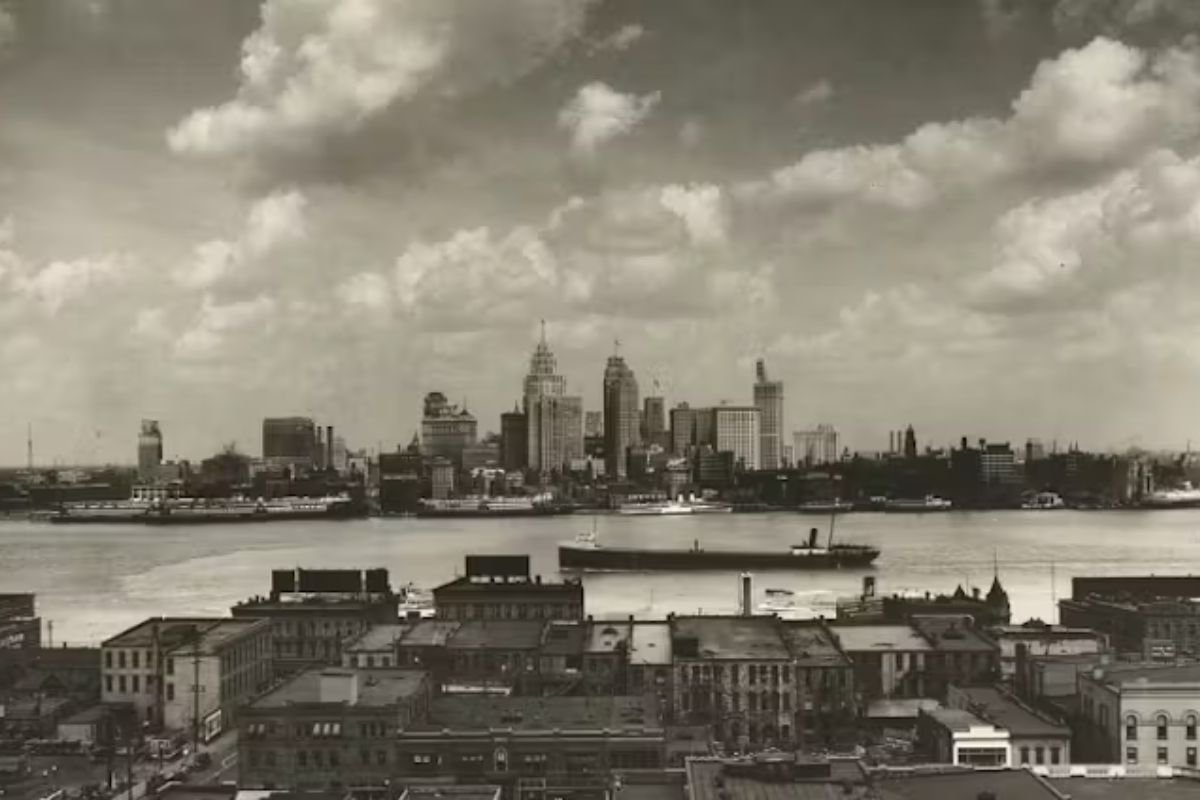
After an extreme climate event like a wildfire or severe storm occurs, often the disaster is just beginning for communities. People must apply for aid, working with the Federal Emergency Management Agency (FEMA) for relief, which may deny their claims. Important documents are sometimes lost or destroyed, and families face wrongful evictions during one of the most stressful events of their lives.
Legal aid attorneys can help. Verna Williams is the CEO of Equal Justice Works (EJW), a nonprofit that works for equal justice. Founded in 1986 by law students, EJW connects lawyers, legal services organizations, and law students devoted to public service. During and after climate disasters, lawyers are able to offer support to communities. EJW had attorneys on the ground after the Hawaii wildfires, for example, and the 2021 tornadoes in Tennessee, providing free legal aid.
But lawyers can also help before a disaster strikes, which is essential as catastrophic weather events show no sign of stopping and are instead becoming more intense and destructive. Williams spoke with NPQ about disaster preparedness and climate resilience for communities.
This interview has been edited for length and clarity.
Alison Stine: Can you introduce Equal Justice Works and the work you do?
Verna Williams: The American Bar Association recently reported that fewer than 1 percent of all the lawyers in the US are paid legal aid attorneys. That is why, for more than 35 years, our mission at Equal Justice Works has been to mobilize public service leaders to close the access to justice gap plaguing our country. We connect passionate lawyers with legal service organizations to kickstart careers in public interest law and instill a long-term commitment to a career in public service, ultimately helping to maintain a pipeline of new and prospective lawyers for the public interest sector—including in the field of disaster resilience.
“The best way for communities to be prepared for a climate disaster is to have the resources and personnel, including public interest lawyers, in place.”
Our Equal Justice Works Disaster Resilience Program (DRP) mobilizes lawyers and law students to provide free civil legal aid in disaster-prone areas to ensure vital legal services are accessible, comprehensive, and responsive to the unique needs of individuals, families, and communities so lives can be stabilized and communities rebuilt to be more resilient.
AS: How can communities become more climate resilient even before disasters occur?
VW: According to the Legal Services Corporation, 92 percent of people’s civil legal needs went unmet in 2022, leaving a massive gap in our justice system—and rendering underresourced and marginalized communities even more vulnerable when disasters occur.
The best way for communities to be prepared for a climate disaster is to have the resources and personnel, including public interest lawyers, in place to address the legal challenges that will occur as a result of a life-changing catastrophe. [Challenges include] applying for Federal Emergency Management Agency (FEMA) benefits or dealing with disaster-related housing insecurity. While funding geared toward disaster relief is essential, so too is funding the disaster preparedness work in communities. Having public interest attorneys embedded in a community before a disaster strikes enables the community to build disaster resilience.
“Lawyers can help uncover patterns of exploitation and bring litigation, or advocate for policy change to help eliminate barriers [to] a just recovery.”
AS: What kind of work do lawyers do in the sphere of disaster preparedness?
Sign up for our free newsletters
Subscribe to NPQ's newsletters to have our top stories delivered directly to your inbox.
By signing up, you agree to our privacy policy and terms of use, and to receive messages from NPQ and our partners.
VW: As climate-related disasters become more frequent and destructive, there is a greater need for resources and support to help individuals, families, and whole communities navigate legal challenges surrounding disasters. Disasters disproportionately affect intentionally marginalized people, folks with physical and mental disabilities, communities of color, and low-income individuals and families.
Preparedness is crucial to reducing risks and increasing capacity to handle disaster-related challenges of all kinds. Our fellows [EJW’s lawyers and law students] help ensure an equitable recovery for disaster survivors, increase awareness of the importance of disaster preparedness, and add capacity for their host organizations.
Lawyers can help uncover patterns of exploitation and bring litigation, or advocate for policy change to help eliminate barriers that impede a just recovery, and [they can] increase [the] capacity of legal services organizations to better meet the needs of disaster survivors during the recovery phase.
“Everyone deserves equal access to justice, especially when facing a life-altering disaster, not just those who can afford legal representation.”
Additionally, there are a number of legal issues that can and should be addressed before disaster strikes that lawyers can assist with such as clearing title, reviewing leases and insurance policies, assisting immigrant communities with status issues, ensuring disaster emergency response efforts are equitable [and] accessible, and engaging in community education and outreach to raise awareness.
One great example of the kind of support Equal Justice Works fellows provide to communities on the ground is our alumni of the Disaster Resilience Program, Delmarie Alicea, who provided direct services to survivors of Hurricanes Irma, Maria, and Michael in Florida. She also led the revision of the 2019 Florida Disaster Assistance Manual for Legal Services Advocates, helping to improve support for those affected by disasters, and is now an Associate Counsel at LatinoJustice.
AS: What types of support do communities need in times of disaster, after a severe storm or another extreme climate event occurs?
VW: Each year, millions of Americans experience at least one major disaster and need help from a qualified lawyer to navigate all the subsequent challenges. But the unfortunate reality is that in the face of life-changing situations and climate disasters, too many people find themselves unable to afford legal assistance. Everyone deserves equal access to justice, especially when facing a life-altering disaster, not just those who can afford legal representation.
After a disaster, our fellows address critical legal needs, which include everything from securing disaster benefits to appealing wrongful FEMA denials, challenging unlawful evictions, replacing important legal documents such as wills and advance directives, tackling insurance claim disputes, and ensuring that children and families have an advocate to support a safe home. And public interest attorneys can help communities identify the support services they qualify for but may not be aware of, ensuring individuals and communities have access to the help they need after a catastrophic event.
AS: What work is Equal Justice Works doing as far as disaster resilience?
VW: The Disaster Resilience Program takes a proactive approach to fill the gap in the disaster response landscape and provides organizations with the capacity and expertise to address disaster legal aid. Since its inception, EJW’s Disaster Resilience Program has received nearly $8 million in grants to address climate disasters, provided nearly 2,000 individuals with legal services, and realized over $1 million in combined economic benefits for clients. The program currently has 20 fellows stationed in nine areas—Arkansas, Florida, Kentucky, Louisiana, Missouri, New Mexico, Puerto Rico, Tennessee, and Texas.
EJW collaborates with community partners, disaster response organizations, and other civil legal aid actors. The Disaster Resilience Program is currently funded by the American Red Cross, Arkansas Community Foundation, Carnegie Corporation of New York, the Center for Disaster Philanthropy, Houston Immigration Legal Services Collaborative, W.K. Kellogg Foundation, and the Danaher [Associate Relief Fund]—to ensure we are best supporting the communities we serve. Thanks to their generous contributions, we have been able to do great work, including providing aid to communities in Florida and Puerto Rico affected by hurricanes and supporting immigrant populations in Houston after natural disasters.










